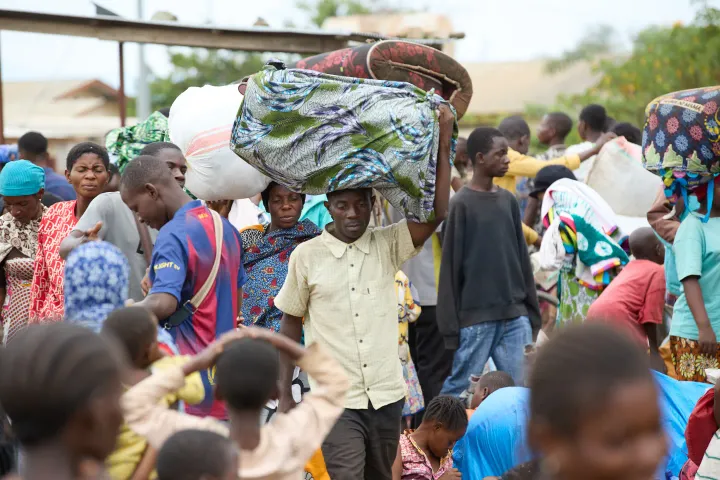Niger's government says heavy rains and flooding have forced the start of the new school year to be delayed by nearly a month.
Torrential downpours have lashed the vast West African nation since June, killing scores and affecting hundreds of thousands of people.
The military-led Sahelian country is among areas of central and west Africa suffering heavy flooding amid an unusually intense rainy season.
The government announced it had pushed the first day of school - planned for October 2 - back to October 28 for the country's nearly 4.5 million pupils.
'Schools impacted'
"Several schools have been impacted, others (are) occupied by those affected," a government round-up read out on state television said late Thursday.
In central-southern Maradi, the most severely hit region, around 100 tents have been erected to accommodate people in schools.
According to the latest interior ministry figures from September 4, 273 people have been killed, 121 of whom drowned and 152 who died due to collapsing homes.
Heavy rains have affected more than 700,000 people, authorities said early this month.
More than 9,700 tonnes of grain were made available this month to people living in eight flood-affected regions, the government said, adding that "the situation is under control".
Ancient mosque collapsed
A popular mid-19th century mosque made from earth and straw in Niger's second biggest city, Zinder, collapsed in the torrential rains early this month.
Concern is also rife in the northern city of Agadez, known as the gateway to the desert, about damage caused to its historic centre, a UNESCO World Heritage site.
Normally lasting from June to September, Niger's rainy season often exacts a heavy toll, with 195 people dying in 2022.
Scientists have long warned that climate change driven by fossil fuel emissions is making extreme weather events such as floods more frequent, intense and longer-lasting.
➤Click here to follow our WhatsApp channel for more stories.
























